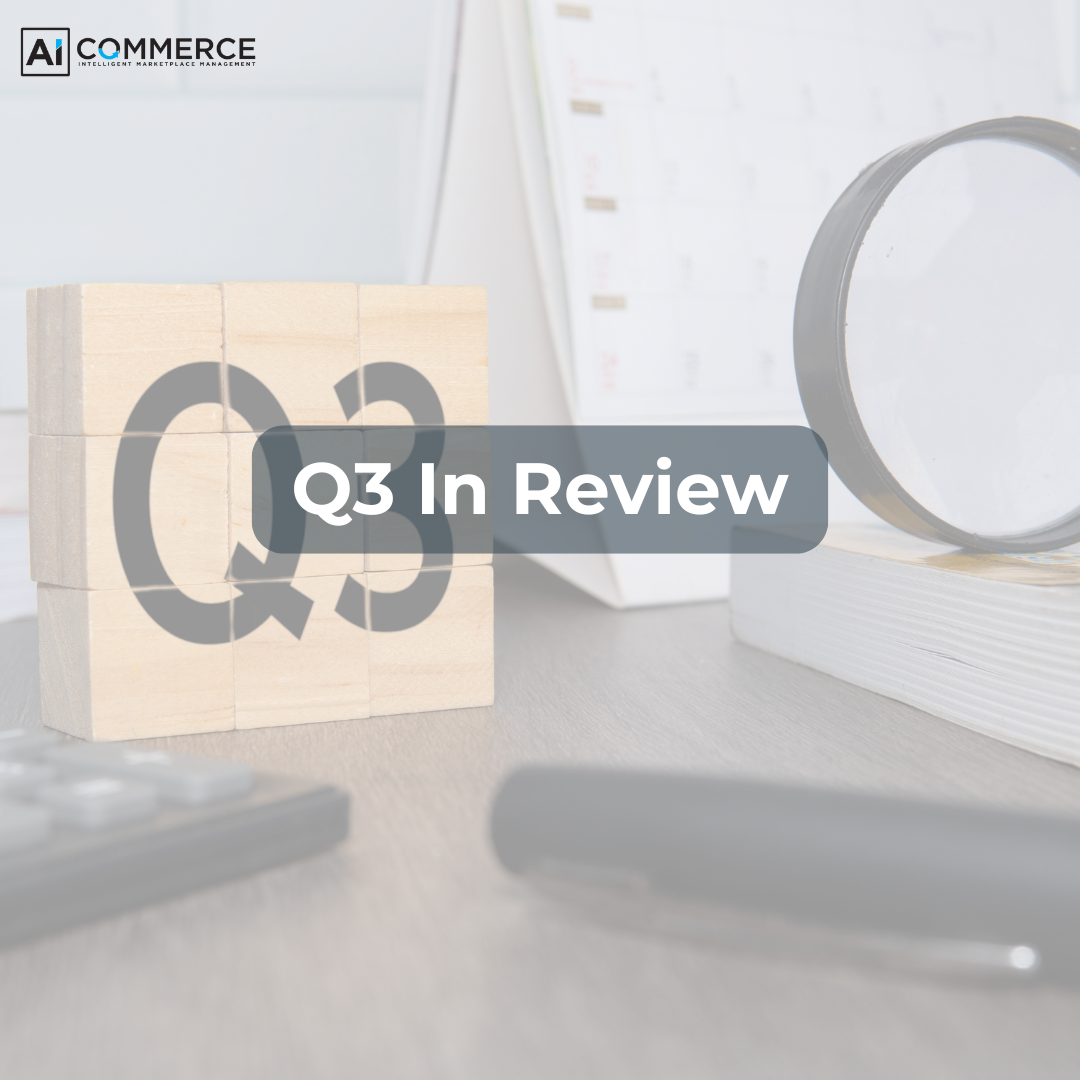Building a Strong Business Roadmap for Your eCommerce Brand
The eCommerce industry is booming, with more businesses entering the digital marketplace every day. However, succeeding in this competitive landscape requires more than just setting up an online store. It demands a well-thought-out business roadmap that outlines your vision, goals, strategies, and action plans. In this blog post, we’ll delve into the key elements of building a strong business roadmap for your eCommerce brand, ensuring you have a solid foundation for growth and success.
Understanding the Importance of a Business Roadmap
A business roadmap is a strategic plan that outlines the direction your company will take to achieve its goals. It serves as a visual guide that helps you stay focused, allocate resources effectively, and make informed decisions. For eCommerce brands, a business roadmap is crucial for several reasons:
- Clarity and Focus: It helps you clearly define your vision and objectives, ensuring everyone in the organization understands the company’s direction.
- Resource Allocation: It enables you to allocate resources (time, money, and manpower) more efficiently.
- Performance Measurement: It provides benchmarks and milestones to measure progress and make necessary adjustments.
- Risk Management: It allows you to anticipate potential challenges and develop strategies to mitigate risks.
Key Components of a Business Roadmap
To build an effective business roadmap for your eCommerce brand, you need to include several key components. These elements will help you create a comprehensive plan that addresses every aspect of your business.
Vision and Mission Statements
Your vision statement defines where you want your eCommerce brand to be in the future, while your mission statement outlines the purpose of your business and how you intend to achieve your vision. Together, these statements provide a clear direction and inspire your team to work towards common goals.
Market Analysis
Understanding your target market is essential for creating a successful eCommerce strategy. Conduct a thorough market analysis to identify your target audience, their needs, preferences, and purchasing behavior. Analyze market trends, competitors, and potential opportunities to position your brand effectively.
Key Aspects to Consider:
- Customer Demographics: Age, gender, location, income level, etc.
- Customer Psychographics: Interests, values, lifestyle, etc.
- Competitor Analysis: Identify direct and indirect competitors, their strengths and weaknesses, and market positioning.
- Market Trends: Current and emerging trends in your industry.
SWOT Analysis
A SWOT analysis helps you identify your eCommerce brand’s strengths, weaknesses, opportunities, and threats. This analysis is crucial for strategic planning, as it allows you to leverage your strengths, address your weaknesses, capitalize on opportunities, and mitigate potential threats.
Goals and Objectives
Set specific, measurable, achievable, relevant, and time-bound (SMART) goals for your eCommerce brand. These goals should align with your vision and mission statements and address the insights gained from your market and SWOT analyses.
Marketing Strategy
Your marketing strategy outlines how you will promote your eCommerce brand and attract customers. It should include a mix of online and offline marketing tactics tailored to your target audience.
Key Elements of a Marketing Strategy:
- Brand Positioning: Define your unique selling proposition (USP) and brand message.
- Content Marketing: Develop a content plan that includes blog posts, videos, infographics, and other forms of content to engage your audience.
- Social Media Marketing: Utilize social media platforms to build brand awareness, engage with customers, and drive traffic to your website.
- Email Marketing: Create email campaigns to nurture leads, promote products, and retain customers.
- Search Engine Optimization (SEO): Optimize your website and content to rank higher in search engine results.
- Paid Advertising: Invest in pay-per-click (PPC) campaigns, social media ads, and other forms of online advertising to reach a broader audience.
Sales Strategy
Your sales strategy should focus on converting visitors into customers and maximizing revenue. This involves optimizing the customer journey, improving the user experience, and implementing effective sales techniques.
Key Elements of a Sales Strategy:
- Website Optimization: Ensure your website is user-friendly, mobile-responsive, and has a fast loading speed.
- Product Pages: Create compelling product descriptions, high-quality images, and clear calls-to-action (CTAs).
- Checkout Process: Simplify the checkout process to reduce cart abandonment rates.
- Customer Support: Provide excellent customer service through live chat, email support, and FAQs.
- Upselling and Cross-selling: Implement strategies to encourage customers to purchase additional or higher-value items.
Operations and Logistics
Efficient operations and logistics are crucial for delivering a seamless customer experience. This includes inventory management, order fulfillment, shipping, and returns.
Key Aspects to Consider:
- Inventory Management: Use inventory management software to track stock levels, forecast demand, and avoid stock outs or overstocking.
- Order Fulfillment: Streamline your order fulfillment process to ensure timely and accurate deliveries.
- Shipping: Offer multiple shipping options and competitive rates. Consider partnering with reliable logistics providers.
- Returns Management: Develop a clear and hassle-free returns policy to enhance customer satisfaction.
Financial Planning
Sound financial planning is essential for the sustainability and growth of your eCommerce brand. This involves budgeting, forecasting, and managing cash flow.
Key Elements of Financial Planning:
- Budgeting: Create a detailed budget that outlines your expected revenue and expenses.
- Revenue Streams: Identify and diversify your revenue streams to reduce financial risk.
- Cost Management: Monitor and control your costs to maintain profitability.
- Financial Projections: Develop financial projections to guide your decision-making and track progress towards your financial goals.
Technology and Infrastructure
Investing in the right technology and infrastructure is crucial for the efficiency and scalability of your eCommerce business. This includes your eCommerce platform, payment gateways, security measures, and analytics tools.
Key Aspects to Consider:
- eCommerce Platform: Choose a reliable and scalable eCommerce platform that meets your business needs (e.g., Shopify, WooCommerce, Magento).
- Payment Gateways: Offer multiple secure payment options to cater to different customer preferences.
- Security: Implement robust security measures to protect customer data and prevent cyberattacks.
- Analytics: Use analytics tools to track website performance, customer behavior, and sales metrics.
Implementation and Execution
Once you have developed your business roadmap, the next step is to implement and execute your plan. This involves setting clear action steps, assigning responsibilities, and monitoring progress.
- Action Plan: Create a detailed action plan that outlines the specific steps you need to take to achieve your goals. Break down each goal into smaller, manageable tasks and set deadlines for each task.
- Assign Responsibilities: Assign responsibilities to team members based on their skills and expertise. Ensure everyone understands their roles and is accountable for their tasks.
- Monitor Progress: Regularly monitor your progress towards your goals. Use key performance indicators (KPIs) to track your performance and identify areas that need improvement.
- Adjust and Adapt: Be prepared to adjust your plan as needed. The business environment is constantly changing, and you may need to adapt your strategies to stay competitive.
Building a strong business roadmap for your eCommerce brand is essential for achieving long-term success. Remember to invest in the right technology, build a strong team, and be prepared to adapt your plan as needed. With a well-thought-out roadmap, you can navigate the complexities of the eCommerce landscape and achieve your business objectives.
More About aiCommerce
aiCommerce is a global digital marketing agency with a focus on retail and eCommerce marketplaces. aiCommerce can help your brand grow across eCommerce channels to gain brand awareness, visibility, and increase sales, all backed by our 90-day guarantee. Now is the perfect time to utilize our eCommerce experts to help grow your business.




